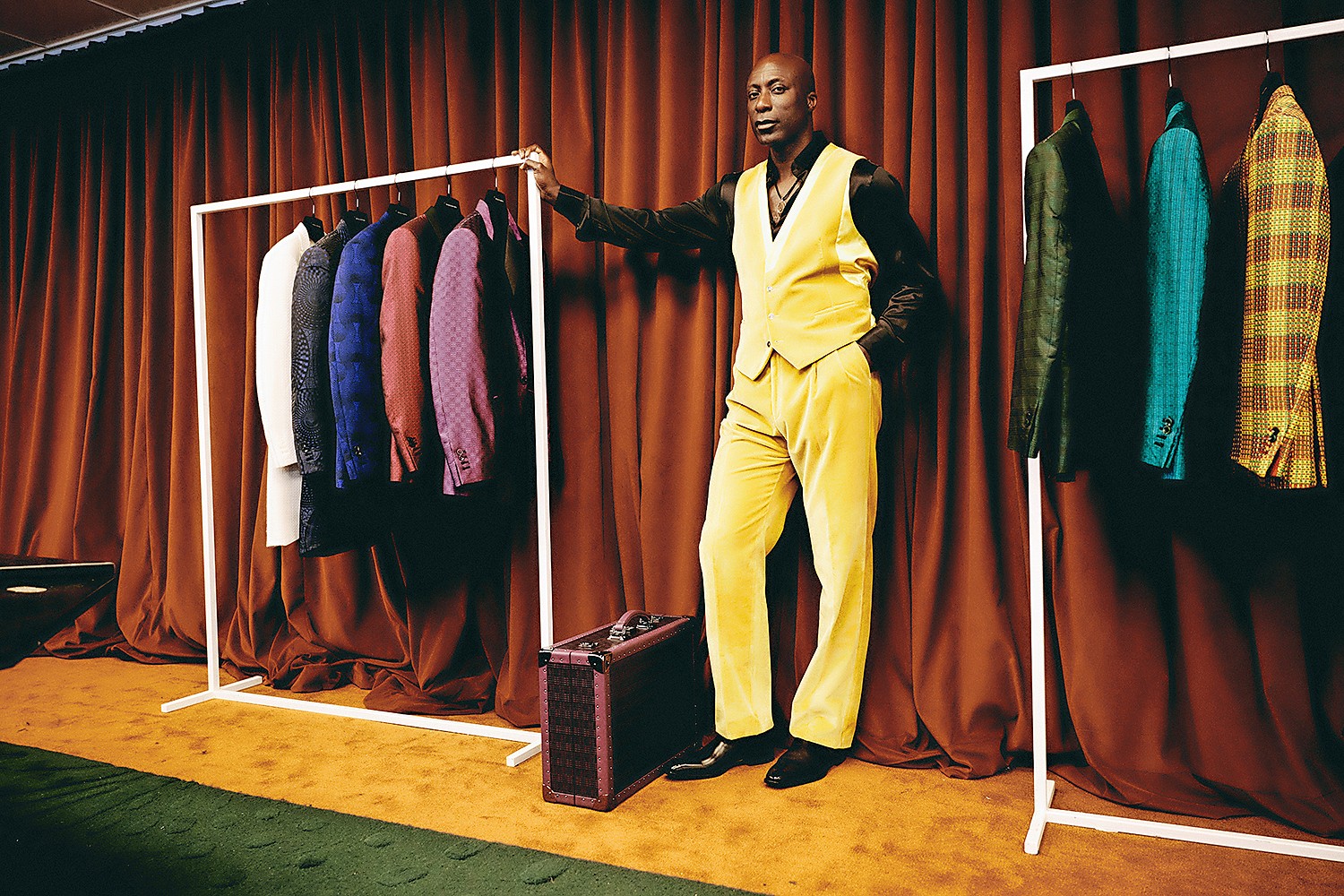When Ozwald Boateng takes his place of honour at Monday’s Met Gala in New York, it will be as Britain’s most famous living tailor – and as a uniquely stylish challenge to the Maga movement’s take on what makes America great.
Boateng, the son of Ghanaian immigrants, wears and cuts exquisite clothes that recall the Black dandyism on show in the Met’s landmark new exhibition on Black style. “Dandyism can seem frivolous,” the show’s curator, Monica L Miller, wrote recently in Vogue. “But it often poses a challenge to social and cultural hierarchies.”
Context is everything. The exhibition opens as Donald Trump’s second presidential term passes the 100-day mark. It was conceived before his re-election, but Vogue editor Anna Wintour’s decision to take it as the theme for the most glamorous red carpet of the year is hard to misinterpret.
The exhibition is based on Slaves to Fashion, a book by Miller about white colonial clothing appropriated and adapted by Black dandies from the 18th century to today. It sets the performative masculinity of JD Vance and Trump against the exquisite suits of the Harlem renaissance – a look celebrated not just in Boateng’s work but in the new blockbuster Sinners, about a one-night “juke joint” in the Mississippi of the Jim Crow era, now number three at the US box office and a hit on both sides of the Atlantic.
“Colonialism has done little good for Africa,” Boateng said recently, “but it brought the western sense of style and elegance. Mixed with local traditions, this created a truly new African identity.”
‘Colonialism has done little good for Africa, but it brought the western sense of style and elegance. Mixed with local traditions, this created a truly new African identity’
‘Colonialism has done little good for Africa, but it brought the western sense of style and elegance. Mixed with local traditions, this created a truly new African identity’
Ozwald Boateng
Boateng’s take on that identity was born watching his immaculately tailored father mocked by thuggish white racists in the Britain of the Windrush generation. His work has always been conscious of the politics of style, even if in his early years on Savile Row he rarely spoke about it.
His 2019 show at the Apollo Theatre in Harlem mixed African aesthetics, Savile Row craftsmanship and the creativity of the Harlem Renaissance, a moment when the Black dandy created the first suit to be banned in America – the zoot suit. After race riots in 1943, the city and county of Los Angeles outlawed the wearing of the pleated, baggy design.
Ridiculous? Not at all, says Richard Benson, former editor of the Face and Arena. “The suit is the civilian military uniform with its rigid codes of buttons and cut. Taking the suit and adding, adapting, adjusting it exposes the pointless patterns of authority. Anybody can dress like the elite… That’s what’s uniquely defiant about Black dandyism – because white liberals can cope with Blackness when it’s meant to be pitied, but when it doesn’t give a shit about you that’s different.”
Boateng designed suits for Marvel’s Black Panther, written and directed by Ryan Coogler. In Sinners, also directed by Coogler, twins Smoke and Stack (both played by Michael B Jordan) return from Chicago to hometown Mississippi and open a juke joint in the face of white fury. Preacher’s son Sammie (Miles Caton) plays a blues song so transcendent that it seems to tear time apart, summoning spirits from the past and future.
In the US charts, Sinners currently sits just below Captain America: Brave New World, in which a rage-filled US president with no political qualifications gains the Oval Office and drags the country towards war, alienating allies as his government cowers. Only a Black Captain America (Anthony Mackie) stands in his way.
Newsletters
Choose the newsletters you want to receive
View more
For information about how The Observer protects your data, read our Privacy Policy
These are the films US cinemagoers are queuing to see in 2025. Between them they constitute a quiet cultural fightback based on the subversive beauty of the Black dandy and the unrecorded bluesman.
If, as movies, they can seem ephemeral, fashion is their perfect partner. “Who do you think has original ideas about fashion?” Benson asks. “Here’s a clue. It’s not posh white people. You have no idea what charge wearing a certain item can have unless you could be beaten up for wearing it in the street.”

